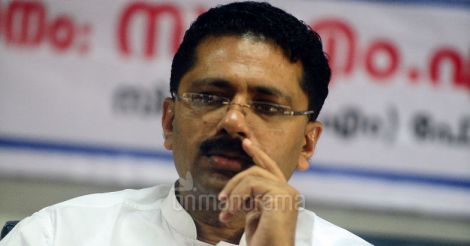The denial of diplomatic passport to minister K.T. Jaleel recently made the Kerala government see red, especially as he was planning to meet distressed Keralites. But the external affairs ministry, which has taken up issues of overseas Indians aggressively under Sushma Swaraj, felt the visit of Jaleel would distract Indian embassy officials, who were busy with the visit of junior external affairs minister V. K. Singh.
The ministry also did not want to trigger similar demands from other state governments. The prime minister's office and the external affairs ministry normally decide on requests by states for issuance of diplomatic passports for chief ministers and ministers of state governments.
Research and Analysis Wing, the external intelligence agency, is also consulted if there are sensitive issues, especially vis-a-vis politicians of Jammu and Kashmir and North Eastern States, who could be approached by separatist groups based abroad.
When a minister from Nagaland was given permission to visit Singapore a decade ago, the agency kept track of his personal meetings to find out whether any Myanmar-based activist of separatist NSCN (Kaplang) met him. When chief ministers and their colleagues want to travel abroad for promoting investment, permissions are granted without much hassles. The finance and commerce ministries are asked for their inputs about the credibility of the country and the industrial groups involved.
Thus chief ministers manage to take big ministerial delegations for global investment conferences. But permissions have been withheld if the embassy concerned gives a thumbs down.
This happened thrice for Madhu Koda, the independent MLA who became chief minister of Jharkhand. He is now in jail on graft charges.
He was denied a diplomatic passport every time he wanted to visit tax havens in Europe and South-east Asia. When a former chief minister of Karnataka was given a doctorate by an obscure university in United States, the ministry was not in favour of giving official status to the visit through a diplomatic passport. State governments maintain a large number of officials who know the functioning of Delhi's corridors of power.
This is mostly to get approvals for travelling for political and bureaucratic reasons.
The Kerala government usually posts IAS officers, whose mother tongue is Hindi or Punjabi in Delhi, so that they can network better with the mostly North Indian bureaucracy of the central government.
Both the LDF and the UDF have preferred North Indians as resident commissioners and additional resident commissioners. Same is the case with some other South Indian state governments. Some states even allot a liaison budget.
An Andhra Pradesh official used to offer lower officials in PMO and ministries the famous laddoo of Tirupati temple.
In the 1990s, a Karnataka liaison official used to give hampers of coffee, pepper, cardamom and honey, to 'move' the travel files. Though there is talk that state governments would be allowed to directly talk to foreign governments on trade and investment issues, under the umbrella of Narendra Modi's cooperative federalism initiative, the PMO and external affairs ministry are invoking their discretionary powers on issuing diplomatic passport to opposition-ruled state governments.

























 Kerala minister for local administration K.T. Jaleel, was recently denied diplomatic passport to visit stranded Indians Saudi Arabia.
Kerala minister for local administration K.T. Jaleel, was recently denied diplomatic passport to visit stranded Indians Saudi Arabia.